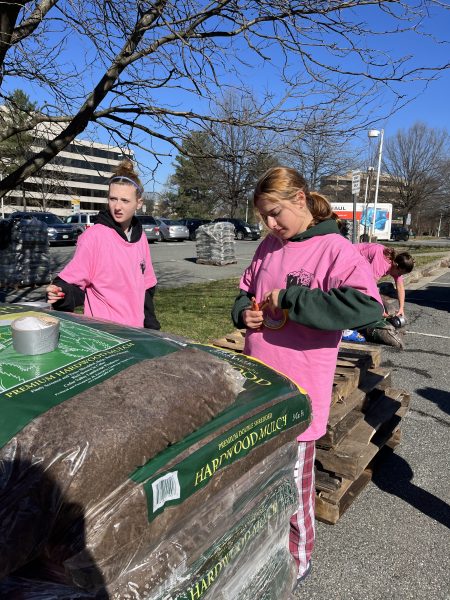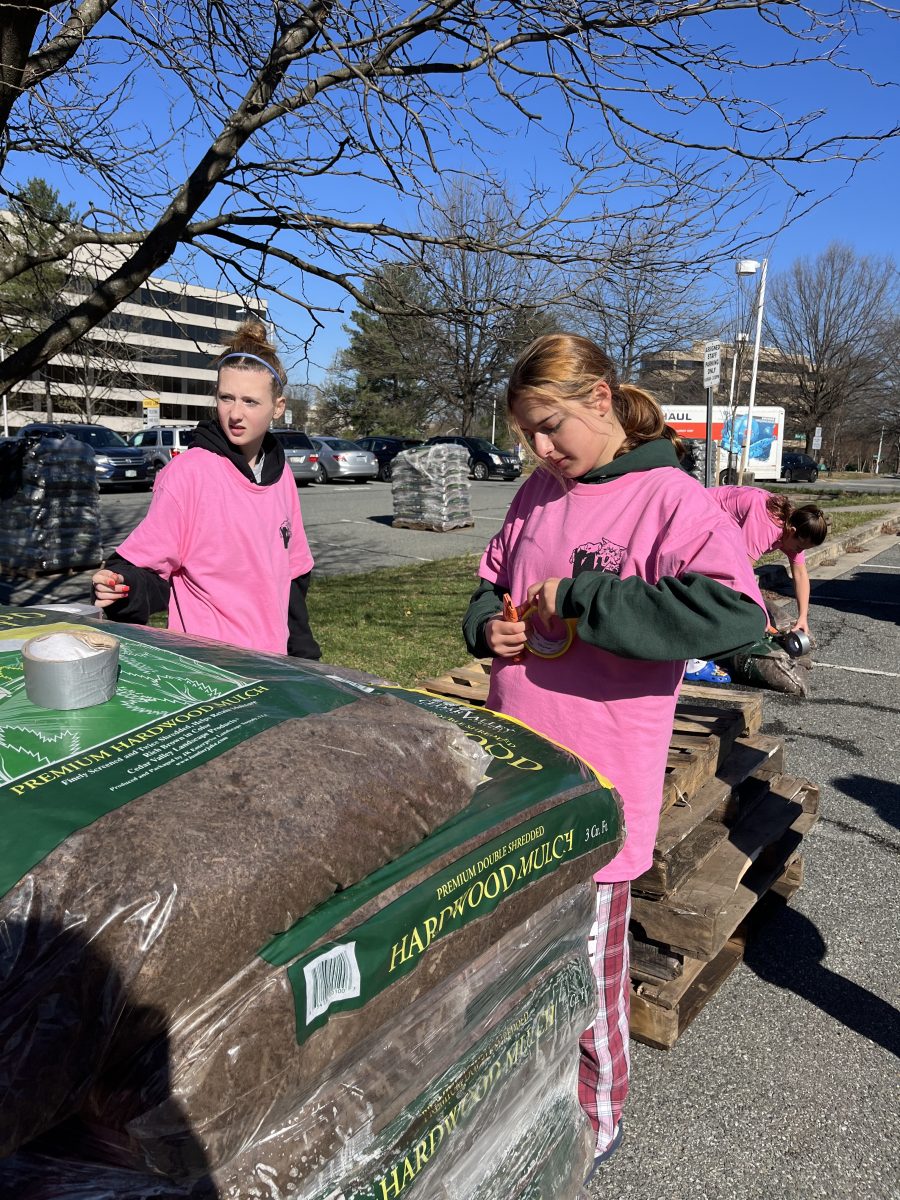
There’s no question that caffeine is everywhere; it’s in stores, restaurants, and your own home. Adults and students alike consume it, and even young kids drink caffeinated sodas.
Because of the wide availability of caffeinated drinks in trendy stores such as Starbucks and local Quartermaine, coffee and tea is pervasive among teenagers.
Sweetly flavored energy drinks, such as Monster, can also be seen in the hands of young people. Many popular drink brands are selling caffeinated beverages.
For instance, the Arizona Beverage Company, makers of the well-known Arizona Tea, is marketing Caution Energy drinks. The drinks are available in regular and low carb. Both types are packaged with bold stripes and the word “caution“ printed in red on the front.
The regular version of the drink advertises “EXTREME PERFORMANCE” on the can.
Other energy drinks feature trendy names such as Rock Star, Monster and Full Throttle, to name a few. This likely helps these products seem more appealing to younger people.
Students at WJ can constantly be seen walking down the hallways while sipping from a cardboard cup printed with the famous Starbucks symbol.
Not only drinkable caffeine is used to help people stay awake. Exercise pills containing large concentrations of caffeine, such as 4Ever Fit, are often abused. The pills are meant to aid exercise, but instead people use them to stay up late so they can finish work. They can be bought over the counter at numerous pharmacies.
It is clear that caffeine can be used to help keep people awake, even when that is not the intended purpose. But can caffeine be lethal?
The death of Ohio teenager Logan Stiner gives an example of how caffeine can be harmful. Stiner, 18, died in his home in May of an apparent caffeine overdose.
The popular high school senior, a wrestler and prom king, was to attend the University of Toledo on an academic scholarship this fall. When he died, Stiner reportedly had over 70 milligrams of caffeine per milliliter of blood in his system, according to autopsy reports.
He was supposed to graduate a few days after his death.
Stiner, who did not usually use energy drinks, had overdosed on caffeine powder, which is federally unregulated in most of America. Most recently, lawmakers in Suffolk County, New York banned the sale of powdered caffeine to minors, at least partially because of Sinter’s death.
The Ohio teenager’s case brings attention to the harmful effects of caffeine. Not only in powdered form, but in energy drinks and other products accessible to students.
Back in 2006, Hagerstown teenager Anais Fournier died of cardiac arrhythmia, or accelerated heart beat, due to caffeine poisoning. Fournier drank two 24-ounce Monster Energy drinks, which are more easily accessible than powdered caffeine.
Health teacher Lorraine Goldstein said teenagers should not consume large amounts of caffeine.
“Caffeine is not something that is really recommended for kids… it is considered a drug and it is a stimulant,” said Goldstein. In contrast, junior Marie-Andrea Djehli-Yahot said that teenagers can have caffeine.
“If you can’t survive without [caffeine], then use it,” said Djehli-Yahot.
Goldstein said energy products should be restricted.
“I think that all of the energy drinks should be regulated by the FDA [Food and Drug Administration],” said Goldstein.
She said high school students need the caffeine to do homework and complete other activities. Goldstein also described the physical effects of caffeine as being negative.
“[Caffeine] can increase your respiration, your pulse, it can basically dehydrate your body because it is a diuretic,” she said. A diuretic is any substance that can stimulate urine production, thus making the body empty out fluids faster.
In contrast, Djehli-Yahot has never faced negative physical effects from using caffeine.
“I’ve used caffeine before to study for exams, but I’ve never had a bad experience,” said Djehli-Yahot.
Sophomore Kaylee Arnold agrees with Goldstein that caffeine can be dangerous.
“If you’re using [caffeine] on a daily basis all the time… I feel like then it gets dangerous,” said Arnold.
She mentions caffeine as being especially bad for young teenagers still in middle school.
“I definitely think caffeine can be [harmful] especially… middle school aged kids because they’re not really developed enough yet for their bodies to be totally into [caffeine],” said Arnold. Djehli-Yahot said that caffeine is necessary for teenagers today.
“If you’re a junior or a senior, you’re going to need caffeine, you’re going to need to drink coffee to get your [work done] and do your homework at the same time,” said Djehli-Yahot. Goldstein said that students could safer ways to finish work, other than caffeine.
“[Teenagers] could be better served [to get more energy] by getting more sleep and drinking more water,” she said.
Djehli-Yahot said that the amount of work high school students have nowadays contributes to caffeine abuse.
“Kids are just so stressed out today with good grades because good grades isn’t just going to get you into college anymore… so I think that the stress level is crazy for kids now,” said Djehli-Yahot. “A lot of kids get messed up because of school itself.”
She cites a now popular fact pointed out by psychologist Robert Leahy in 2008, that the average high schooler today has the same anxiety level of the average asylum patient in the early 1950’s.
Djehli-Yahot also said that powdered caffeine should be outlawed solely because of Logan Stiner’s death.
“[Powdered caffeine] should be outlawed if it caused multiple deaths… you got to have more than just one person [dying],” she said.
Arnold said that the amount of press surrounding Stiner’s death is necessary.
“It was necessary for [Stiner’s death] to be big news… because teens and kids and even adults should know that anything like [powdered caffeine] in big doses is going to affect you,” said Arnold.



![Sophomore Mason Lee encompasses the persona of his character, Enjolras, during a rehearsal of Act One. I think [rehearsals are] going well and were very on track [with the squedule]... which is good, Student Assistant Director senior Neena Tavik, who is also playing Eponine, said. (Courtesy Sasha Rotton)](https://www.wjpitch.com/wp-content/uploads/2024/03/24466917-801C-45FE-A882-D818DABBDCB8-600x451.jpg)



![Since the collapse of the Baltimore Bridge in late March, federal law enforcement has began investigating what preceded the event. In a statement to CBS News, a spokesperson for the FBI said, [The] FBI is present aboard the cargo ship Dali conducting court authorized law enforcement activity. There is no other public information available and we will have no further comment. (Courtesy Isaac Smay via Flickr)](https://www.wjpitch.com/wp-content/uploads/2024/04/53619368036_399400003a_b-600x400.jpg)

















